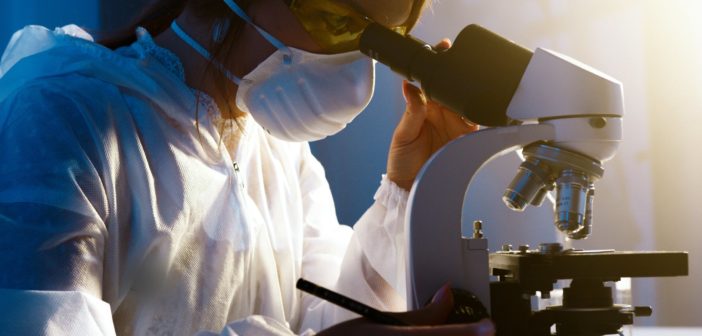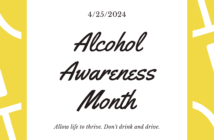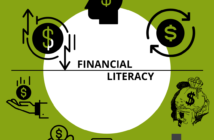By Lauren Felts, Advertisement Manager
On Nov. 15, Saint Leo University hosted an event in TECO Hall in light of Vaccination Appreciation Day to discuss the importance of vaccinations. Since the beginning of the pandemic, vaccinations have become a topic of interest for the public health industry. In light of the COVID-19 vaccine release, Saint Leo hosted a few speakers to answer a few questions regarding the pandemic as well as the effectiveness of vaccinations. Speakers Dr. Donna Peterson, Dr. Michael Teng, Dr. Kevin Sneed, and Dr. Jacob Aguilar all gave brief presentations on some relevant topics to vaccinations.
Peterson, the senior vice president at the University of South Florida, and dean of the College of Public Health spoke about the history of diseases and the startup of vaccinations. In honor of health and public health care, she covered the origin of vaccinations which were formed to help protect communities from certain illnesses and diseases as well as prevent any further spread of these diseases. The very first vaccination was created in the 18th century when doctors realized that they could take a mild version of the cowpox virus to ensure immunity to the very fatal smallpox virus. This served as the very first piece of inoculation technology until a more modern approach was taken later in the 20th century.
Peterson went even deeper into the history of disease by discussing the very first ever recorded disease known as the plague of Athens. “The conditions in which people lived had declined and didn’t have the same kind of resources or the same kind of food and were malnourished and their immune system likely became weak,” said Peterson. As a result, when the people from Athens returned home from war, they brought diseases and illnesses along with them spreading it with their communities. About a quarter and a half of the population in Athens died due to this.
In addition, more commonly known, the black plague caused by the trade industry as people were traveling more bringing in viruses from the rats that instigated the plague also known as black death. This went on for years and ended up killing roughly one third of the population. “This was a horrific experience and again, people had moved to urban areas and living under akratic conditions, they didn’t have the good food sources and their immune systems were likely weakened. Then you add to this exposure of a new disease and it caused complete chaos,” said Peterson.
The bubonic plague actually became one of the first pandemics that led to the first quarantine laws when people realized how isolation helped prevent further spread of these deadly viruses. Since then, and with the centuries that followed this, the small pox vaccine was formulated and as stated above later improved in the 20th century. This was based on the idea that you could put something into your body that could protect a community from illness. However, Teng, associate dean of internal medicine at USF, proposed one problem of usefulness as it was incredibly difficult to find something like the mild version of the cowpox virus to be injected into someone to help with protection.
Because of the complexity of vaccines, it took a very long time to find something comparable. When rabies became prevalent, Dr. Louis Pasteur “found that he could make the virus weaker by passing it through certain animals and tissues, and that was really effective,” said Teng. This became the next well-known method of virus protection. As we can see through the course of history, technological advancements continued to improve as more diseases popped up and scientists began to understand the organisms that were causing infection.
A good example, “In 1942, they figured out you could grow influenza virus in embryonated eggs,” said Teng. By taking a whole bunch of that virus, you could kill it with certain chemicals and inject that. Now by being able to grow certain viruses, as well as isolate certain toxins from viruses and inactivate them with chemicals preventing them from causing further infection, scientists have a multitude of different ways they can formulate a vaccine which has also sped up the production of vaccines much more effectively than from history. Based off statistics, evidence has proved the efficiency of vaccines as Teng showcased some examples of infographics and numbers of infections due to certain diseases as opposed to the decreased numbers of infection after the vaccination was released.
These are a few of the more modern methods of vaccinations today, in addition to what is called the subunit approach, “which is where you make the protein in a completely different organism, bacteria, yeast, and you make that one antigen and inject that,” said Teng. This was the technology for a long time until someone realized even this could be improved. Since then, we’ve graduated to what has been used with the COVID-19 vaccine. Here, scientists are using biovectors, “where you take a non-pathogenic virus and take out the important genes, put in the gene that you want with the antigen and then that goes in the vaccine,” said Teng.
This method so far has proved to be most effective since discovering that the immune system can produce memory cells from this and can be reactivated from similar viruses with the same pathogen. The reason why certain vaccines are given in a series like the COVID-19 vaccine is because there’s a period in which the immune response decreases to the pathogens which is often when a second dose is required to maximize protection. “That’s also important then for us to have this circulating antibody to protect against infection from a variety of sources and the more people that have the circulating antibody the better,” said Teng. This proposes the idea of herding, which basically means the more people that are vaccinated, the less the chances are of spreading infection.
Now considering these facts, it is important to keep this knowledge in mind and appreciate the scientists and doctors that work very long and hard hours so that we can better prepare ourselves for the future. While they continue to work on medical advancements that will better our communities, it is very important that we do our part by getting vaccinated to ensure the health of ourselves, our loved ones, and the general public.





